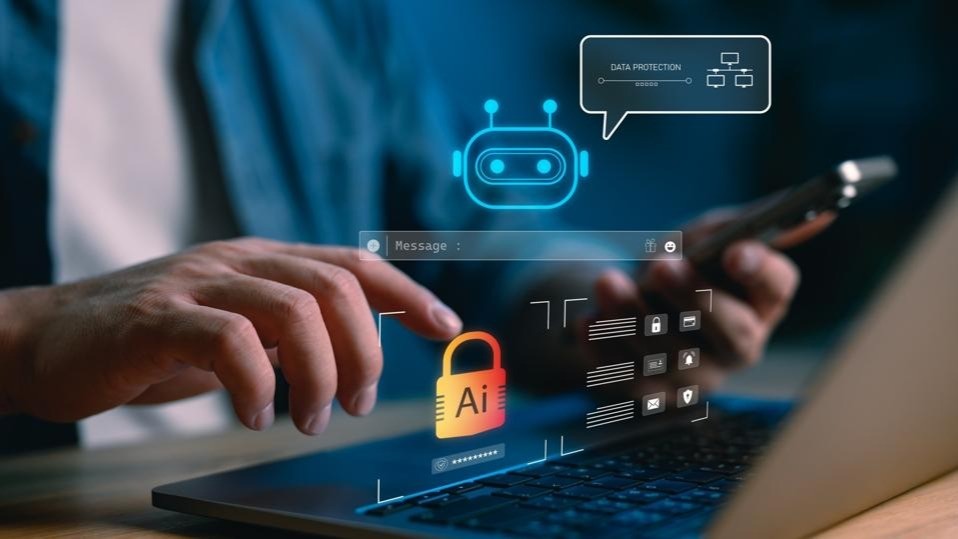Will AI Really Revolutionize Every Industry? A Critical Analysis
5 August 2024
Every day, it seems, we hear bolder and more grandiose claims about how AI is poised to change the world. Most specifically, we’re told, it will affect every industry and change the way we work.
Famously, Alphabet CEO Sundar Pichai said that he thinks AI will be more transformative than fire or electricity.
It’s very easy to get caught up in the excitement. But here’s the problem: Most of this buzz and hype is coming from multi-billion or trillion-dollar companies – like Alphabet – that have a vested interest in selling us on an AI-powered future.
To what extent are these hyperbolic predictions realistic, and how much is simply marketing hype?
Is it really set to change every business and industry? Or is it just another money-spinner for some of the world’s richest and most powerful corporations?
In this article, I’ll try to cut through the noise to take a hard look at how well some of these claims really stand up.

Don’t Believe The Hype?
We’ve become used to hearing wild and sensational predictions about the impact that AI will have on business and the economy. For example, PwC predicts that AI will add over $15 trillion dollars of value to the global economy by the year 2030.
To put that into perspective, that’s equal to the impact of four new nations, each the size of Germany, emerging within the next five years.
In healthcare alone, the market for AI products and services is forecast to reach $208 billion by 2030. AI advocates claim that AI can outperform doctors at diagnosing illnesses and will revolutionize the process of drug discovery.
In financial services, it’s claimed that benefits could be around $1 trillion, as professionals in the industry use AI to automate fraud detection, investment and trading algorithms, numerous back office functions as well as customer service.
In manufacturing, AI-powered “lights-out” or “dark” factories, it is claimed, will operate without human involvement, as robots and automated systems operate production lines around the clock.
In retail, we are told, we will see a rise in cashierless stores, as well as continued growth in online shopping, largely driven by the adoption of AI technology. This will enable businesses to provide us with more personalized retail experiences as well as interactive, tech-driven innovations such as virtual fitting rooms and smart mirrors.
But what about industries where it seems difficult to imagine manual human skills being replaced? Construction, for example?
Well, many processes around design, architecture, engineering and project planning and management will be automated, we are told. But so too will building skills themselves, as autonomous robots become capable of carrying out the work of bricklayers, pipe fitters and electricians.
It certainly seems like big changes are ahead, but how does this all stack up with reality?
Reality Or Marketing?
While the picture being painted points to an imminent revolution across all industries, in reality, the impact is likely to be more iterative and nuanced.
Many of the predictions are based more on the potential of AI, than its actual capabilities. Meanwhile, in the real world, there are a huge number of hurdles that will need to be overcome before this potential will be reached.
For a start, there’s the question of trust, which is essential for the broader adoption of AI. For example, the technology to create self-driving cars already exists, but despite the efficiency and convenience benefits they promise, they aren’t yet a common sight on our roads.
This is because regulators and the wider public don’t yet trust the technology. In fact, trust seems to be declining – one study found that 53 percent of us are ready to put our trust in AI today, compared to 61% five years ago.
Predictions of astronomic leaps in value that AI will add to industries may be achievable in theory. But challenges around regulation and data privacy, as well as technical challenges such as overcoming AI hallucination and bias, may not be simple to solve.
In retail, for example, all of the technologies mentioned – cashierless stores, smart mirrors, virtual fitting rooms – have been trialed and prototyped in recent years, but none of them have yet been adopted by the mainstream.
However, in financial services, we can see that there is evidence that AI is already generating change. When I recently spoke to Mastercard CTO Ed McLaughlin, he told me that it had stopped $20 billion worth of fraud thanks to AI in the past 12 months while simultaneously massively reducing the number of false positives that result in genuine customer transactions being declined.
Overall, this means that while I believe AI will have truly profound implications for business, jobs and industry, the pace of this transformation may well be slower than some of the hype and hyperbole suggests – in the short term, at least.
Looking Further Ahead
If we look to a longer timescale, then it’s very hard to imagine a future where AI isn’t hugely transformational.
For evidence of this, I believe we should look at the outcome of previous technological quantum leaps.
As with fire, electricity or nuclear power, AI isn’t going to go away, whether we like it or not. It’s only going to get better, faster and more powerful.
To me, it seem to be very unlikely that technical challenges won’t be resolved, along with the legal, societal and ethical hurdles.
In fact, betting against AI being transformational would be a little like betting against the internet being transformational 30 years ago. While it might be difficult for us to imagine the profound changes it will bring, that doesn’t mean they aren’t going to happen.
So, to sum up, I believe that all the evidence points towards the fact that although the AI revolution is underway, the dramatic changes we have been promised may not happen overnight. And the journey to mainstream adoption may take longer than those who are selling it would like us to believe.
However, the end result is likely to be significant advancements and efficiencies that will radically change the way we work and do business. Don’t count on it happening tomorrow, but equally, don’t pretend that AI is a fad that will be forgotten about any time soon.
Related Articles
AI Chatbots Are Quietly Creating A Privacy Nightmare
By now, “smart” versions exist of just about every home appliance, gadget and gizmos we can think of. However, manufacturers continue[...]
What Is Zero Click And Why Is It Turning Marketing On Its Head?
By now, “smart” versions exist of just about every home appliance, gadget and gizmos we can think of. However, manufacturers continue[...]
How Globant Is Reinventing Professional Services With AI Pods And Subscription Models
By now, “smart” versions exist of just about every home appliance, gadget and gizmos we can think of. However, manufacturers continue[...]
20 Game-Changing AI Tools Every Small Business Leader Needs Now
By now, “smart” versions exist of just about every home appliance, gadget and gizmos we can think of. However, manufacturers continue[...]
New Study Reveals True AI Capabilities And Job Replacement Risk
By now, “smart” versions exist of just about every home appliance, gadget and gizmos we can think of. However, manufacturers continue[...]
How Generative AI Will Affect Jobs In Restaurants And Hospitality
By now, “smart” versions exist of just about every home appliance, gadget and gizmos we can think of. However, manufacturers continue[...]
Sign up to Stay in Touch!
Bernard Marr is a world-renowned futurist, influencer and thought leader in the fields of business and technology, with a passion for using technology for the good of humanity.
He is a best-selling author of over 20 books, writes a regular column for Forbes and advises and coaches many of the world’s best-known organisations.
He has a combined following of 4 million people across his social media channels and newsletters and was ranked by LinkedIn as one of the top 5 business influencers in the world.
Bernard’s latest book is ‘Generative AI in Practice’.










Social Media